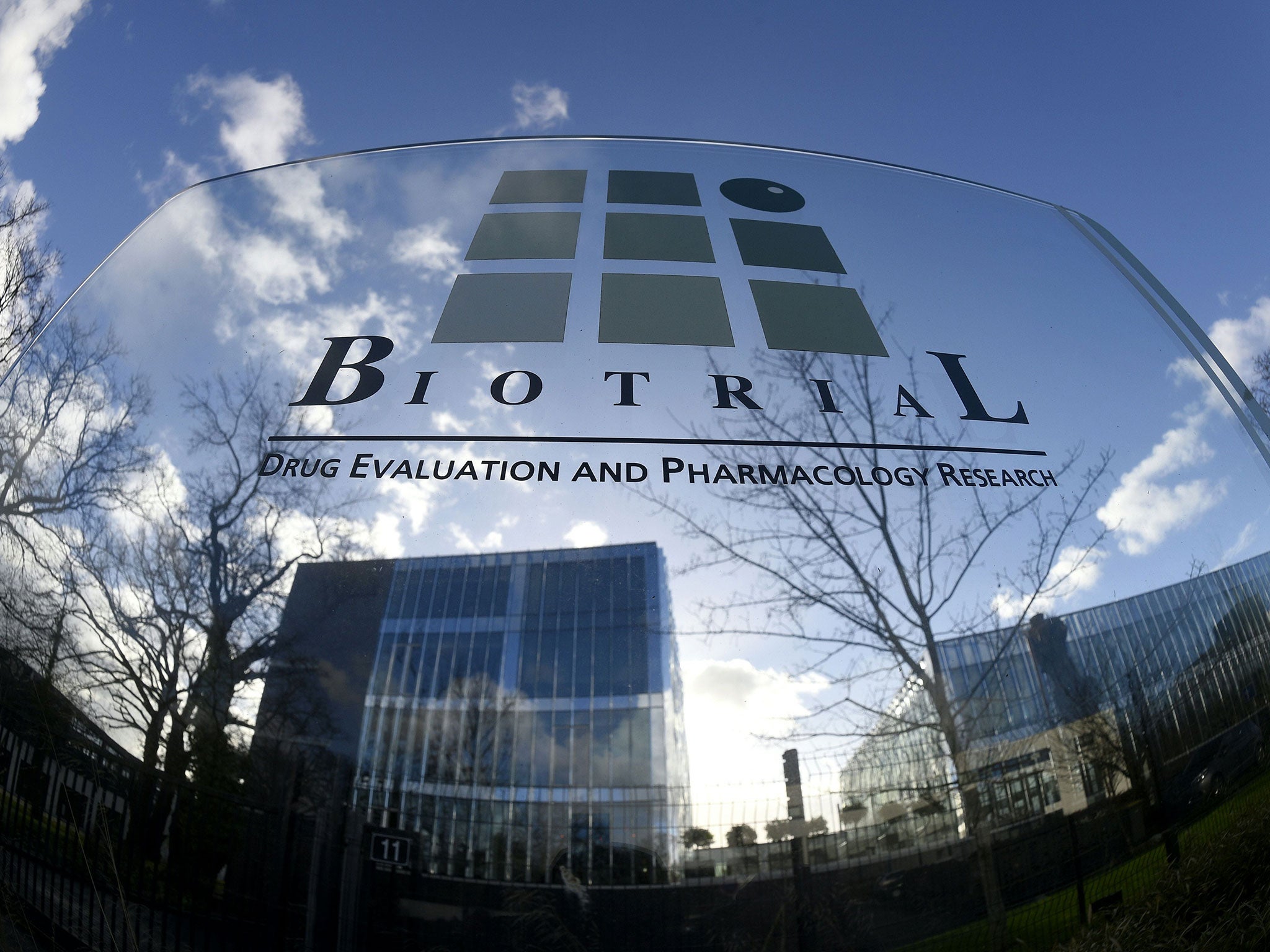France drug trial: Inquiry into fatal test comes under attack over 'shocking' secrecy
Much of the information uncovered by the ANSM and the French social affairs inspectorate has been denied to colleagues in other countries on the grounds that it is covered by medical secrecy and industrial property rights

Health officials across the EU have protested to France about the secrecy of investigations into the drug trial in Brittany last month which killed one volunteer, while five others fell ill.
Reports in France also claim that a number of dogs apparently died when exposed to the same drug in earlier trials. Three separate investigations are under way but European authorities are angry that information is not being shared.
The British Journal of Clinical Pharmacology is to publish an article next month on the fatal trial in Rennes which is expected to be severely critical. One of the co-authors of the article, Professor Adam Cohen, of the Centre for Human Drug research in Leiden in the Netherlands, told Le Figaro: “I am shocked by the lack of transparency displayed by the French national medicine agency [the ANSM].”
Much of the information uncovered by the ANSM and the French social affairs inspectorate has been denied to colleagues in other countries on the grounds that it is covered by medical secrecy and industrial property rights.
Professor Stephen Senn, of the Luxembourg health institute and the Royal Statistical Society in London, said: “You can’t justify allowing industrial secrecy to come before avoiding other potentially serious problems for patients in other drugs trials.”
The trial of the drug, code-named BIA 10-2474, saw one 49-year-old man die days after being given the drug. Five others fell ill.
According to Le Figaro, the drug had previously been tested on dogs. Several of them were said to have died.
Biotrial, the company which conducted the trials for Portuguese pharmaceutical company Bial, said that they had not been involved in the earlier tests on dogs and other animals. These tests had involved much higher doses. Nothing suggested that a smaller dose would be dangerous to human volunteers, the it said.
A preliminary report into the human trial absolved Biotrial, Bial and the ANSM, which approved the trial, of wrongdoing.
Join our commenting forum
Join thought-provoking conversations, follow other Independent readers and see their replies
Comments
Bookmark popover
Removed from bookmarks